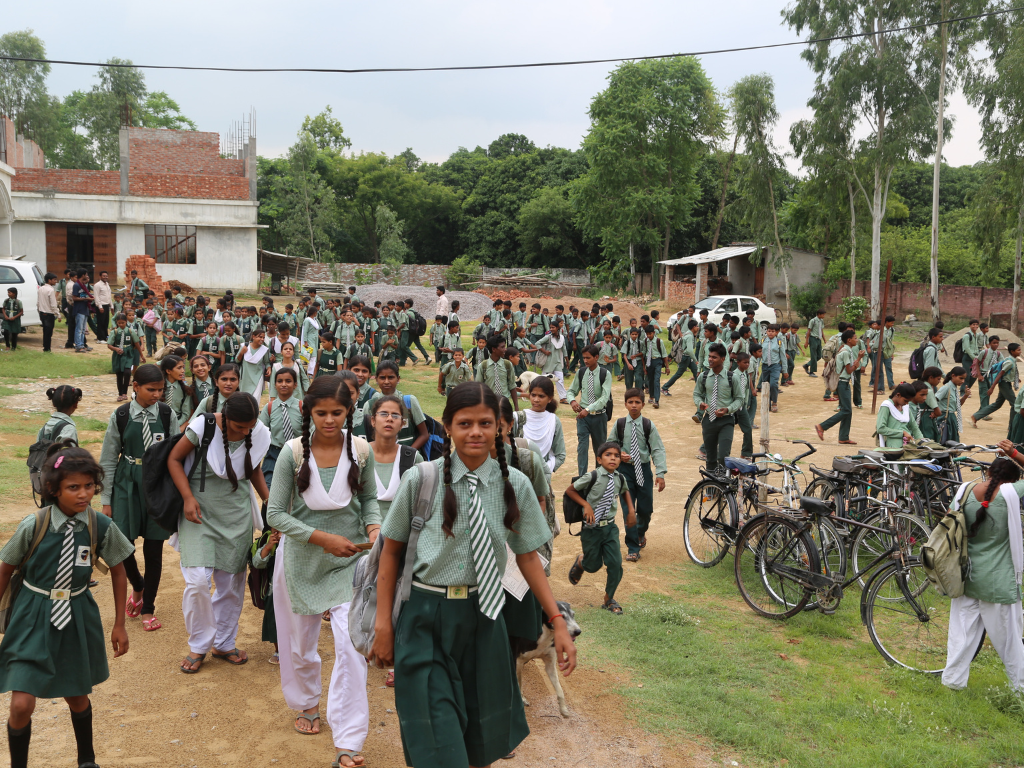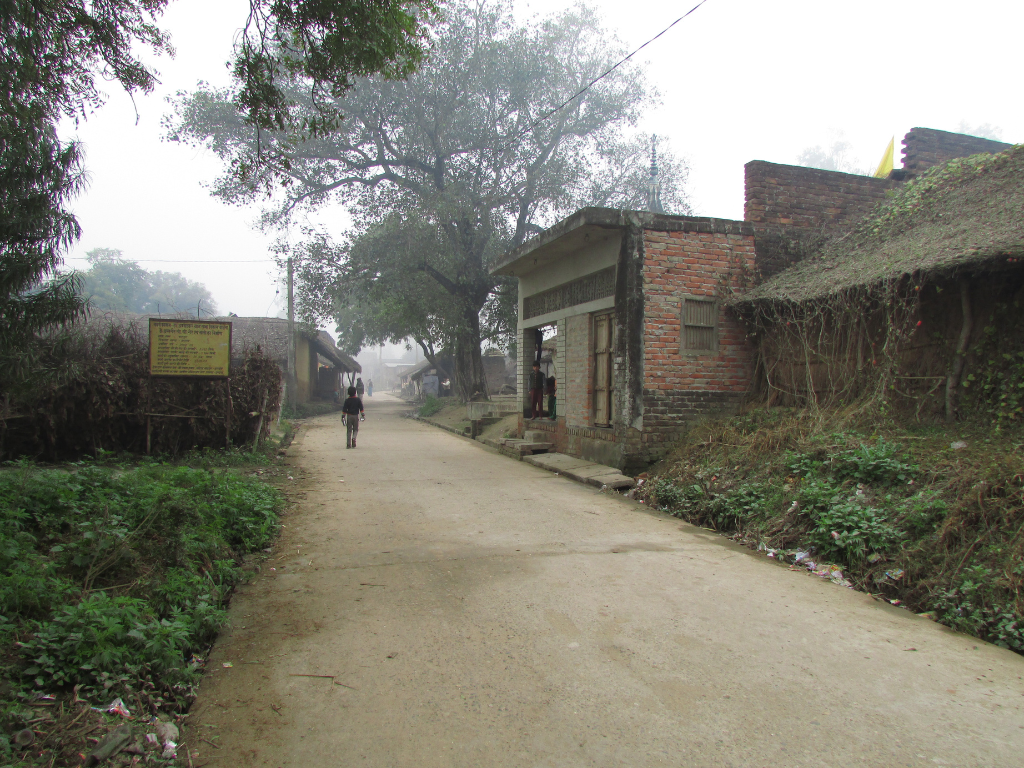The following is an opinion piece by Swarachna School leadership team member: Akshay Shetty.
It relates to Akshay’s experiences working in the school and relating world issues to students from rural backgrounds.
Temperatures in Sitapur have been nose-diving into single digits steadily and our wonderful students are having a tough time riding their bicycles through the dense fog every morning. After the tumultuous journey, the last thing they look forward to is standing for the school assembly on the ground. In order to make the experience a little more fun, we decided to tweak it a little.
One of my early realisations after moving here was that people here are entirely cut off from the world outside their respective villages. While India is debating intolerance and bullet trains, students here are blissfully unaware of them. Education is not just about gaining knowledge, but also about understanding the world that we live in; more so because it will help us to create a better one for ourselves. It is with these thoughts that we decided to drop all the prayers from the assembly and introduced newspaper headlines instead.
Our administrator, Manjul was dispatched to the nearest town Sidhauli to get the newspapers. I handpicked a few news items and requested Chhaya Singh from 11th grade to read them out. As Chhaya read out the news, she was unsurprisingly greeted with blank faces. Students couldn’t make any sense of what was being read. That was when our Principal, Sutapa Ma’am and I decided to explain each news item to them.
The first headline was about the devastating floods in Chennai. While some students had heard about the calamity, they were unaware of the extent of the damage it has caused. Ma’am explained to them why Chennai saw such heavy rainfall, the current status and the impending relief and rehabilitation work that will now be taken up by different agencies.
Next up was the hotly debated even-odd license plate formula being mulled by the AAP government to combat the worsening pollution levels in Delhi. Ma’am first explained why green laws are important and then spoke about the new provision. She also took a quick poll among the students, asking if it is a practical solution. The majority of them felt it was one, except a few who thought it would be inconvenient for some.
I then told students about Britain’s offensive against ISIS. Before telling them about it, the gargantuan task was to explain the organisation to the students. I told them that ISIS is a terrorist organisation whose alleged aim is to create an Islamic caliphate in the world. I also took pains to explain that a majority of the world’s Muslims do not identify with it and the majority of its victims have, in fact, been ordinary Muslims. In a school with a significant Muslim population, this was an important distinction to make.
The last news item was about the CBI planning to investigate Jagdish Tytler’s role in the 1984 anti-Sikh riots. This required me to give a long history lesson on Indira Gandhi, the Khalistan movement, Operation Bluestar, her assassination, and the riots that followed. I told students about the tremendous delay that characterises many such investigations where powerful people are involved and the long and almost never-ending wait for justice.
The school assembly did end up taking up more time than it usually does. But I think it was worth it. It has piqued their curiosity and they are now reading newspapers regularly in the library and also asking more questions. We are on to a good start!
Author: Akshay Shetty



